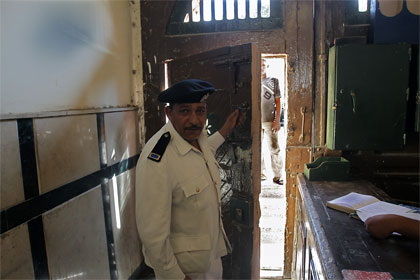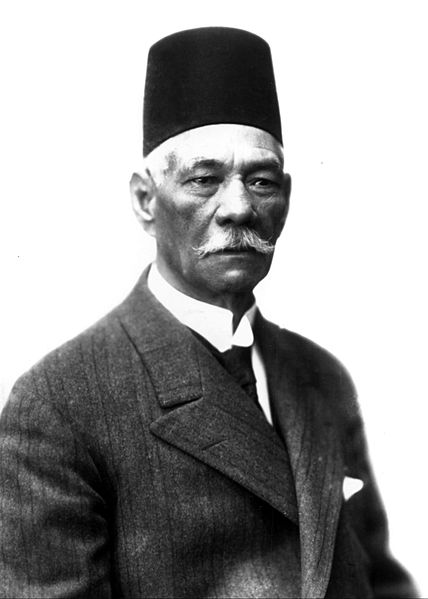I never thought I would live to read anything remotely similar to this.
 |
| Photo: Shorouk |
Shorouk news, one of Egypt's leading daily newspapers and news websites, published an account of what their sources say has happened during Mubarak's first day in Torah Prison. Among the highlights, according to the sources:
- Mubarak spent three hours not wanting to leave the helicopter taking him to the prison. Eventually, and after fainting three times during negotiations, he relented and was taken into the intensive care unit there.
- The source also tells Shorouk that Mubarak said: "How could I be the hero of the October War, the commander of the air strike, leader of the army all of my life, and how after all of my service to Egypt this could be my end? I demanded the formation of a fact-finding committee on how protesters were killed. I demanded an investigation of what happened in Suez and Tahrir."
« إزاي أكون بطل حرب أكتوبر.. وصاحب الضربة الجوية.. وقائد للجيش طوال عمري.. وإزاى بعد خدمتي لمصر طول عمري تكون دي نهايتي.. أنا طلبت تشكيل لجنة تقصى حقائق للبحث عن كيفية قتل المتظاهرين.. وطالبت بالتحقيق فيما حدث في السويس وفى التحرير».
- Apparently, and understandably, it was quite the mixed affair for everyone in the prison. According to Shorouk, most of the officers were quite taken by the sight of the former president inside prison, some were tearful even, with some worried he might die from the shock of his imprisonment, especially due to his continuous fainting. He also allegedly fainted when he saw the blue prison uniform, and might be exempted from wearing it according to Ahram Online. Some were not so sympathetic though, according to the paper.
- Given his advanced age and medical condition, Mubarak is in a specially-set ICU room. 4 doctors are supervising his medical status according to the paper, while Ahram Online says he is "...being supervised by five doctors (...), an intensive care unit specialist, and two nurses."
- According to Egyptian law, an imprisoned family can demand "reunion" under special circumstances. If Alaa Gamal, his sons, file for reunion, they could stay with Mubarak in the same prison and manage to visit him during specific times. The two sons remain in prison pending investigations and trial on a new economic corruption case, even though they have been cleared of all original charges in the Mubarak trial.
- The paper says that, after hearing about the protests after his verdict, Mubarak kept repeating: "What, after the imprisonment of Mubarak? What do they want? God is my helper against the one/those who imprisoned me because I'm suffering injustice here. I'm suffering injustice. And I'm always with the people."
«إيه اللي بعد حبس مبارك.. هما عايزين إيه تاني أكثر من اللي حصل.. وظل يردد صارخا: حسبي الله ونعم الوكيل في اللي دخلني السجن لأني مظلوم.. مظلوم.. وأنا دائما مع الشعب، ».
Mubarak is in Jail. What a mind-blowing notion.
Oh, one last thing. The Head Of Prisons who supervised this entire affair is apparently called "General Mohammed Naguib." General Mohammed Naguib is also the name of Egypt's first President, who was put under house arrest by Nasser because he wanted to end the military regime and restore multiparty democracy. He suffered massive injustice throughout his life. Life is not short on irony.























